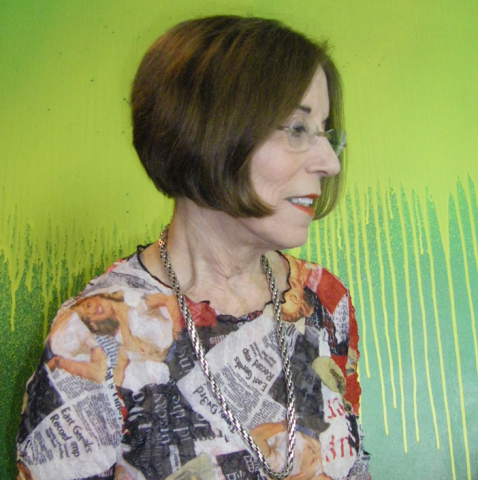TW Interview by Bianca Garcia
Susan Terris is our featured poet for November 2010. She has published many poetry books, including Contrariwise and Eye of the Holocaust, and has edited a number of poetry journals. She is currently the editor of Spillway.
Bianca Garcia, TW’s Social Media Consultant, interviewed Susan recently by email. Bianca wanted to find out about the online publishing aspects of her work, and if Susan is influenced by the rise of social media. "It turns out that she is a pretty traditional writer," Bianca notes.
 They also covered the challenge of fitting writing into a busy life, this month's TW theme. Susan offered the following advice:
They also covered the challenge of fitting writing into a busy life, this month's TW theme. Susan offered the following advice:
If you’re going to be a writer, you have to be ruthless and not worry about what other people may think. You have to work past rejection and remember most rejection is not personal (though very occasionally it is). You have to be willing to risk everything."
TW: When did you first know you wanted to be a poet?
ST: Not quite the right question to ask me. The question is when I knew I wanted to be a writer. When I was still a child I knew. I had my first story published in a children’s magazine when I was 12. Then I was hooked. And I was blessed to have parents and many teachers who encouraged me to keep writing. My first writing career was in the field of children’s books, where I had 21 books for children and young adults published over a period of almost 25 years. I made an abrupt left turn (I’m left-handed) when my teenage daughter was very ill, and I could no longer spend two years at a time writing and editing a novel for young adults. A poem was a discreet amount of text, a compressed subject that was easier for me to deal with at that time. I’ve never looked back.
TW: You’ve published several poetry books already and your next one, The Homelessness of Self, is scheduled for publication in 2011. How do you promote your work online?
ST: I have a website, but this needs more updating than I seem to get around to. I don’t know that it will reflect my new book or new chapbooks or my job as editor of Spillway (and as a poetry editor for Pedestal and for In Posse Review) when this interview goes online, but it’s my November project. Mostly, I think my work gets promoted by the publications in which I’m published, since most of them have online presences in which my name (and often my poems) appear.
TW: How do you connect with your readers online/electronically?
ST: I publish a fair amount of poetry in online journals under the theory that anyone who googles my name can read what I’m writing. The downside is that old, old poems I no longer like are also readily available. The upside is that I believe these sites have bigger readerships than many literary magazines. Any day I’m feeling the need to have something accepted, I send off work to an online publication. Response is usually much faster. Publication, too. So, it's a somewhat quicker form of gratification than print magazines.
TW: Do you have a favorite website?
ST: Google, Amazon.com, and any other website where I can do research. I love to do research on topics I’m writing on. The Web puts so much at my fingertips I no longer have to haunt libraries to find out when Roy Cohn died or whether Chang or Eng was born first or whether there was a moon on January 1, 1900.
TW: Do you ever turn to your readers for inspiration and “crowdsource” ideas from them?
ST: No. I have a few trusted friends—writers and poets who will help me brainstorm an idea once I’ve started on it—not to critique my poetry, but to suggest sources where I might want to look or ideas I might want to explore in a poem or series of poems.
TW: As someone who runs a variety of literary publications, how do you find time to write, balancing it with other aspects of your life?
ST: This is always hard—balancing work, editing, running workshops, and being present and involved with my large family (husband, three children, three in-law children, twelve grandchildren). I try to get away two or three weeks a year by myself to do nothing but write. I can revise and revise once I’m started, but getting started is always the challenge. It’s necessary sometimes just to be selfish enough to do things that nourish the self—otherwise I'd have nothing to give to others.
TW: What’s the best advice you’ve ever received as a writer?
ST: Here’s a short précis of what others have told me and what I’ve learned on my own: If you’re going to be a writer, you have to be ruthless and not worry about what other people may think. You have to work past rejection and remember most rejection is not personal (though very occasionally it is). You have to be willing to risk everything. If you can’t/won’t take risks, the rewards will probably be as small as the risks. You can’t be afraid to fail.
"Knock-knock. Who’s there? Dishes. Dishes who? Dishes me. Who ish you?
Who ish you? I ask peering into darkness. Back with a slight lisp, the old existential question and its Rimbaud- like answer: I is another. Is that why I’m here?"
—Susan Terris, from "Two Poems" ("The Primrose Path")
